
Magdalena Lottner and Veronika Ertl
Universität Regensburg
Fakultät für Mathematik
Universitätsstraße 31
93053 Regensburg
Talentfördergruppe für Studentinnen der Mathematik
The goal of this initiative is to foster exchange of fascinating mathematical topics and topics pertinent to academia, career and studies among talented students.
At the moment the focus is on marginalised groups, in particular women in mathematics, but the hope is that the development of society will make such a distinction redundant.
The initiative is supported by the Fakultät für Mathematik of the Universität Regensburg, by the SBF 1085 "Higher Invariants", and by the RTG 2339 " Interfaces, Complex Structures, and Singular Limits".
The term "Student of mathematics" here is interpreted in the broadest way: anyone with an interest to understand mathematical problems more deeply. Certainly most of the mathematicians would call themselves students of mathematics. Primarily, bachelor and master students in mathematics at the Universität Regensburg are invited, but we also welcome students of any other subject with an interest in apects of mathematics, alumni who now follow a career path in or outside academia, doctoral students, hobby mathematicians, etc. Evidence suggests that such diversity enriches a community and help individuals to grow together on a personal and professional level.
Meetings
We would like to organise regular (maybe monthly) meeting to discuss interesting mathematical themes in a laid-back atmosphere.Because of the "corona situation" it is not possible to meet in person at the moment. Instead we will have video conferences for the moment via zoom.
The date, time and subject for the next meeting will be voted on by the participants and then posted here.
We will meet for about an hour. Usually there is one or two mathematical presentations that vary in length (10-30 minutes) on a topic suggested by the participants. This can be done by one of the organisers, one of the participants, a professor, a postdoc, a PhD student, etc. Afterwards there is time for questions and discussions.
If you have a topic in mind please don't hesitate to let us know!
May 2020 |
During our first meeting we want to get to know each other a little better: Who are you? Why are you intrigued by mathematics in general? What topics are particularly fascinating for you? Was there an event that sparked your interest in mathematics? Please prepare a short presentation about yourself and your interests in mathematics. Also questions for the other participants, for the organisers, about the program are welcome. At the end we will decide on the topic for the next meeting. |
June 2020 |
The topic of our June meeting is Cryptography. A short talk about some basics of cryptography will provide the context for our discussion. From there we can take it anywhere we want: talk about certain mathematical aspects, discuss challenges of modern cryptography, try our hands on some ciphers,... Participants are encouraged to contribute whatever they feel is interesting, funny, remarkable... Here are some suggestions to give you a starting point - but don't let your creativity and curiosity be stifled by that. |
July 2020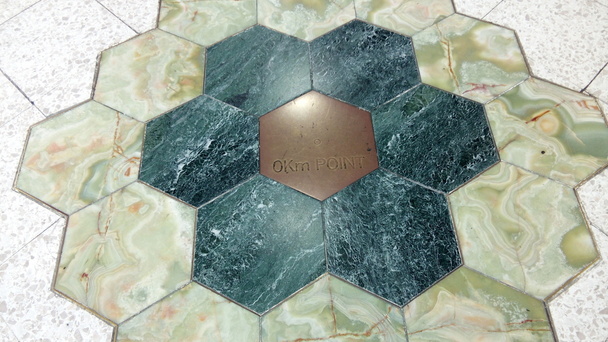 |
This time, we want to talk about Game Theory. After a short introduction there will be several contributions from the participants. To help us start an interesting discussion, you can find some suggestions here. As there are so many interesting aspects to this topic, we encourage you to follow your own thoughts and share them with us. |
August 2020 |
Lukas Lewark is our guest and talks about Knot Theory. Here you find some suggestions for your personal research. |
October 2020 |
We finally meet in person for an informal autumn picnic. |
November 2020 |
"You are studying mathematics?! So you are very good at calculating? That would be nothing for me. But what are you actually doing?" We all know these conversations. This time we would like to discuss how to present or explain mathematics to non-mathematicians. |
December 2020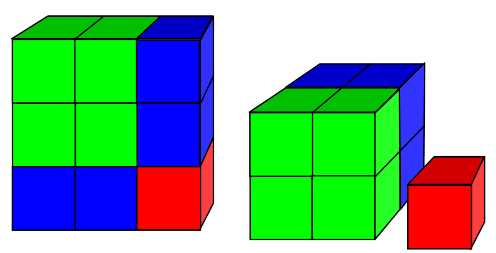 |
The topic of our meeting this time will be a classical problem from Number Theory: Catalan's Conjecture, which is now proven and known as Mihăilescu's theorem.
It tells us that the only consecutive natural numbers which are prefect squares are 8 and 9. The proof involves some advanced pieces of modern mathematics. But partial results could already be obtained with basic number theory. We will discuss about some of the math involved. Participants are encouraged to prepare short contributions. Here are some suggestions to give you a starting point. |
January 2021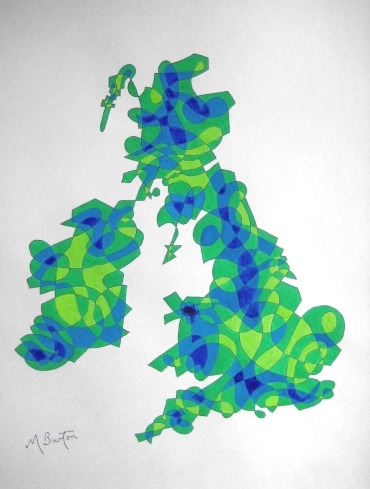 |
We have a very interesting and in some sense controversial topic this time: The Four Colour Theorem.
It states that any map in a plane can be coloured using four colours in such a way that regions sharing a common boundary (other than a single point) do not share the same colour.
The proof stands out because it was the first proof of a major theorem achieved with extensive computer assistance. And this is precisely why it is controversial. Here are some suggestions to give you a starting point. |
March 2021 |
Discussion about masterprojects and plans. |
April 2021 |
During the first meeting of the semester we want to get to know each other a little better and in particular welcome the new participants. Please prepare a short presentation about yourself and your interests in mathematics. Also questions for the other participants, for the organisers, about the program are welcome. |
May 2021 |
Our subject this time is Topology in Neuroscience. We will listen to a presentation by Alice who is doing an internship in the Neuroscience Department. |
June 2021 |
This time, we have two subjects: Magdalena is talking about mathematical physics. Stefanie will tell us about The linear regression method in SPSS and its limitations |
July 2021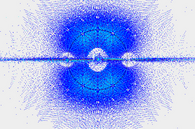 |
We will have two presentations that go into very different directions: The topic of Carolyn's talk is Geometric formulation of classical mechanics: Lagrangian and Hamiltonian formalisms on manifolds. Jessica will talk about The understanding of science in psychology. |
September 2021 |
Our second informal autumn picnic finishes the academic year for us. |
October 2021 |
We have an organisational meeting to discuss plans, suggestions and wishes for the upcoming semester. |
November 2021 |
We are excited for our first in-person meeting! This time we will venture into K-theory and listen to a talk by Malena about K0 of rings. If there is time left, we will solve some mathematical riddles together. |
December 2021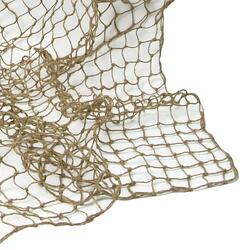 |
Our last meeting this year will be online. We have two very different subjects this time: Nathalie will tell us about a new tool in math education called "Häufigkeitsnetz". Annika will tell us about some historical mysteries in ancient Roman studies and confuse us with a number riddle. |
January 2022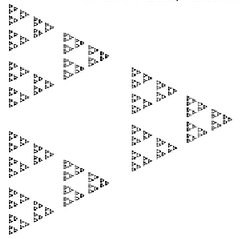 |
The meeting will be a hybrid meeting. This time we have a special guest, Ramla Abdellatif, who will talk to us about p-adic numbers and why she was fascinated by them as a student. |
April 2022 |
We meet for a spring picnic during the semester break and discuss our plans for the upcoming semester. |
May 2022 |
The meeting will be a hybrid meeting. Carolyn will tell us about her experience at the workshop Graduate Research Opportunities for Women at Bonn 2022 and we will discuss about related topics and questions. |
June 2022 |
In this outdoor meeting we brainstorm ideas for a potential outreach project of the group. The starting idea is to make short videos for the general public concerning mathematical themes. |
July 2022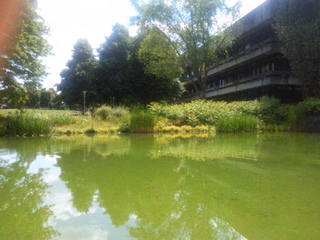 |
Our project got the working title "More than numbers". In our last meeting we came up with several ideas for short videos introducing the fascinating world of mathematics to the general public. Now we want to assign tasks to advance the project over the summer. We also will have two small workshops on git and latex. |
Special workshops
We try to organise one or two workshop every year tailored to the needs and wishes of the participants.- December 2020 - January 2021: Information workshop concerning PhD-positions
- This online workshop features speakers who talk about their experience during their PhD, but also how to find a PhD-position.
- July 2021: Day-long seminar on rhetoric
- Due to the corona virus pandemic the organisation of our first workshop was a challenge, but the IHK-Akademie in Ostbayern GmbH worked closely together with us to make the workshop lead by Barbara Fußy-Böhme possible.
- July 2022: Self-defence workshop
- Oliver Hense of rumble club will teach us in a half-day workshop about self defence in theory and practice.
Suggestions for future topics
After having voted on different topics suggested during the first meeting, here is the list of topics ordered by their number of votes:- Cryptography
- en/decryption algorithms (e.g. RSA-algorithm)
- Game theory
- influencing of strategy (e.g. Poker), Nash equilibrium
- Mathematical miscellanea
- the surreal numbers (in honour of John Conway)
- Differential geometry and general relativity
- black holes and geometric phenomena of the ART-model
- Graph theoretical problems
- find the shortet way through a graph (application "travelling salesman")
- Explain mathematic to non-mathematicians
- collect easy proofs of nice mathematical results, discuss strategies
- Gödel's incompleteness theorems
- one of the most important theorems of modern logic that demonstrate the inherent limitations of formal systems
- Fermat's last theorem
- discuss partial solutions and the significance of the completed proof
- Category theory
- its origins and strengths in proofs.
- Catalan's Conjecture
- a typical number theoretical problem: the statement is easy to understand, while the proof took a long time to be completed
Information useful for your studies and (academic) career
Doctoral studies: Are you thinking about doing a PhD after your Masters?Then you might find the workshop helpful that we are organising for master students of our department. We invited speakers with different backgrounds, from different countries who will not only talk about their experience of doing a PhD, but also give the participants useful information on application procedures and programs in different countries.
The first meeting will be 14th December 2020 at 16:00 via zoom.
Please write to veronika[dot]ertl[at]mathematik[dot]uni[minus]regensburg[dot]de to obtain the zoom-access.
There will be three more meetings in January/February 2021.
Study abroad: Mathematics is international.
During your career - starting at the university and going on to what ever path you decide to go - you will probably interact with many people from different backgrounds, countries, cultures. You can take advantage of the exchange programs of the university to gain mathematical knowledge, improve your language proficiency and social skills, get to know people around the world.
The contact person for internationalisation, exchange, and in particular the ERASMUS-program in the Departmetn of Mathematics is Prof. Niko Naumann. The university offers a number of exchange programs, both in Europe and overseas.
Be a tutor: Learning through teaching.
Being a tutor (Studentische Hilfskraft) in the math department is a great way to get to know the academic environment from a different view point. You will not only learn how to transmit knowledge effectively, by lecturing, explaining and moderating discussions, but you will also deepen your mathematical knowledge and probably even learn some new aspects by interacting with the students in your group. The skills that you acquire will not only be useful if you decide to stay in academia, but also in other career paths.
The positions are advertised through a certain period of the semester for the following semester on the department's website. The coordinator for these positions is Dr. Catharina Würth. We will point you to important information and deadlines as they become available.
Other topics of interest: if you are interested in a specific topic concerning studies, career, thesis, degrees, etc. let us know!
Interesting mathematical links
There are many resources with mathematical content online. Here are just a few that you might find interesting.If you have any recommendations of blogs, sites, videos, youtube channels, articles, etc. that we should check out, let us know!
StackExchang Mathematic: Questions and answers about topics in mathematics.
Here you can ask more "basic" questions - or look for answers. Or just find interesting topics and read about them.
MathOverflow: Questions and answers about topics in mathematics.
This is reserved for more advanced questions. It's often very helpful and interesting.
arXiv: Preprint database for mathematics.
This is one of the most popular databases for preprints in mathematics (there are also sections for other sciences). You can subscribe to get a summary of the newest preprints in your chosen fields. IT's good to stay up to date, or to find free versions of papers.
QuantaMagazine: Popular science articles on math and other sciences.
They often have nice articles about recent events in mathematics, ground breaking research explained for non-experts,etc.
Terry Tao's blog: Math blog.
Research updates, notes about recent developments in the math world, advise for young mathematicians.
Numberphile: Videos about numbers.
Short interesting videos about anyhting to do with numbers, often with well-known mathematicians.
IAS youtube: Videos of the Institute of Advanced Study.
Videos and talks about research at the IAS. One of my favourite talks is this talk by Drinfeld.
Junior Mathematical Research Archive: Videos of the Institute of Advanced Study.
Short research videos by junior mathematicians in all areas of pure mathematics.
Organisers
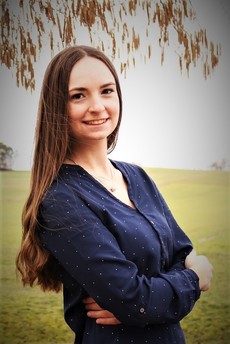 |
Magdalena is a PhD student under Professor Felix Finster at the Universität Regensburg. In her PhD she is working with mathematical physics but also has a wide span of interests. Moreover she enjoyes different kinds of sports and photography. Email: magdalena[dot]lottner[at]mathematik[dot]uni[minus]regensburg[dot]de |
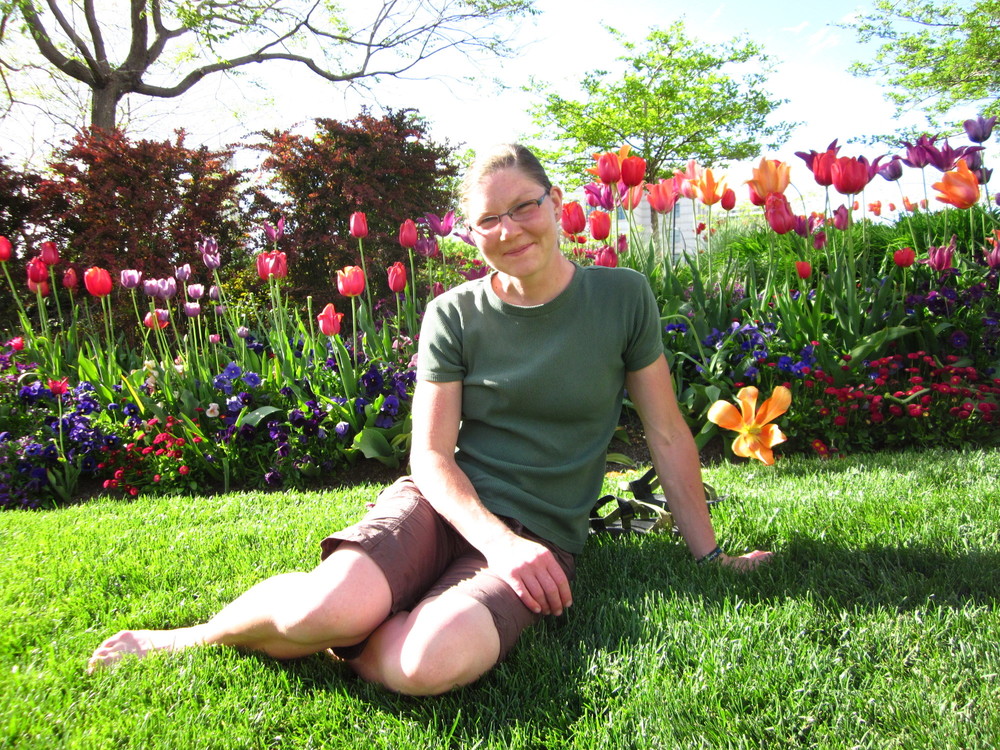 |
Veronika is a postdoc under Professor Niko Naumann at the Universität Regensburg. Her mathematical interests are varied, but she is mostly researching topics in arithmetic geometry. Her other passion is sports, in particular artistic gymnastics. Email: veronika[dot]ertl[at]mathematik[dot]uni[minus]regensburg[dot]de |